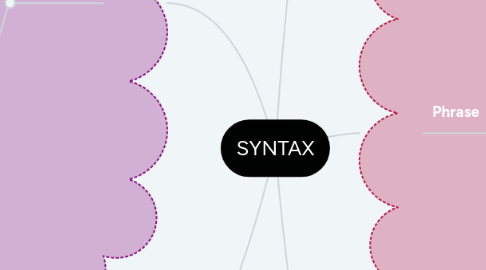
1. Clauses
1.1. Independet clauses
1.1.1. Every independent clause has one subject and one verb
1.1.2. Can stand by itself as a complete sentence
1.2. Dependent clauses
1.2.1. A dependent clause can´t be a complete sentence by itself
1.2.2. It always starts with a subordinating conjunction or a relative pronoun
1.2.2.1. Subordinating conjunction
1.2.2.1.1. When
1.2.2.1.2. While
1.2.2.1.3. Although
1.2.2.1.4. Because
1.2.2.1.5. Since
1.2.2.2. Relative pronoun
1.2.2.2.1. Who
1.2.2.2.2. Which
1.2.2.2.3. Whose
1.2.2.2.4. Whom
1.2.2.2.5. What
1.2.2.2.6. That
1.2.2.3. Dependent clauses that start with a relative pronoun are called relative clauses
2. Types of sentences
2.1. Simple
2.1.1. Subject+verb
2.2. Compound
2.2.1. Independent claus+fanboys+independent claus
2.3. Complex
2.3.1. 1 Independent claus + connector subordinate + (x) dependent claus
2.4. Compound-complex
2.4.1. 2 Independent claus + connector subordinate + (x) dependent claus
3. Phrase
3.1. Noun phrase
3.1.1. Is a word or group of words that can function as the subject, the object or the complement in a sentence
3.2. Verb phrase
3.2.1. Consists of a main verb alone, or a main verb plus any modal and/or auxiliary verbs
3.3. Complex verb phrase
3.3.1. May include one modal verb and one or more auxiliary verbs before the main verb
3.4. Simple verb phrase
3.4.1. Consists of a main verb
3.5. Adverb phrase
3.5.1. The adverb is the head of the phrase and can appear alone or it can be modified by other words
3.6. Gerund phrase
3.6.1. Is a phrase consisting of a gerund and any modifiers or objects associated with it
